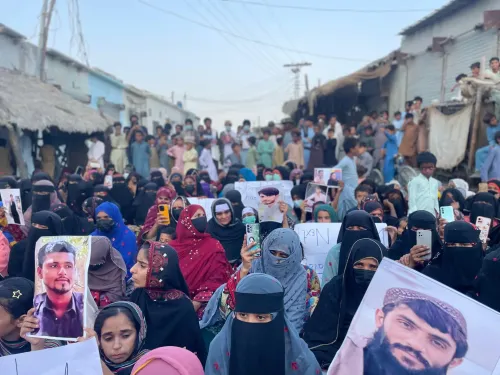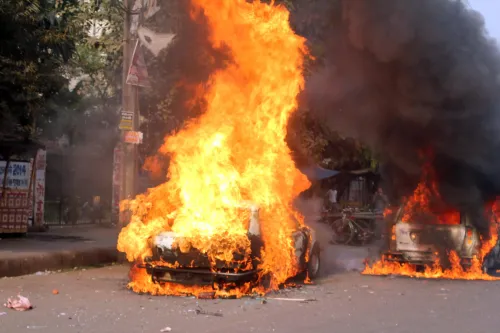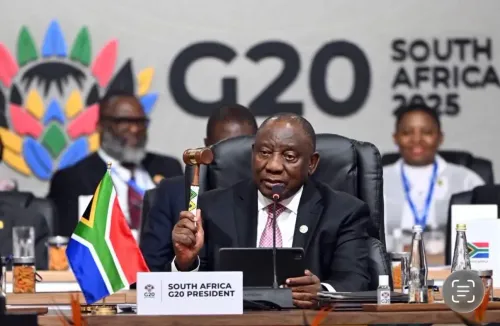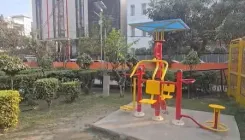Did Israel Just Destroy Key Missile Infrastructure of the Iranian Regime?
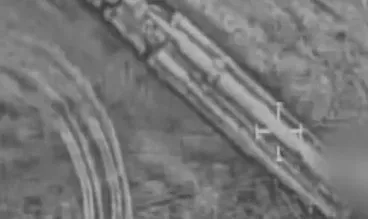
Synopsis
Key Takeaways
- Israel destroyed Iranian missile infrastructure.
- High-ranking Iranian officials were targeted.
- Strikes aimed to minimize civilian casualties.
- Conflict continues to escalate regionally.
- Strategic implications for future military engagements.
Tel Aviv, June 17 (NationPress) On Tuesday, Israel revealed the destruction of numerous surface-to-surface missiles and surface-to-air missile launchers belonging to the Iranian regime amid escalating tensions between the two nations.
“Multiple facilities used for storing and launching surface-to-surface missiles and surface-to-air missile launchers were obliterated. Last night, the Air Force executed several waves of airstrikes against various Iranian military installations in western Iran. These attacks targeted numerous infrastructures utilized for missile storage and launch, drone storage sites, and missile launchers,” stated the Israel Defence Force (IDF) in a post on X.
Additionally, the IDF asserted that on Monday, the Israeli Air Force carried out a precise strike based on intelligence, targeting a communication center being exploited for military objectives by the Iranian Armed Forces.
“This structure was disguised as a civilian facility but was fundamentally serving military functions. The IDF took care to issue timely warnings to the civilian population, including phone notifications, in order to minimize civilian casualties,” it elaborated.
Furthermore, the IDF reported that four senior Iranian intelligence officials, including the head of the Intelligence Organisation of the Islamic Revolutionary Guard Corps (IRGC), were killed during an airstrike carried out by Israeli jets in Tehran.
This operation was executed on Sunday night, targeting a building in the Iranian capital where significant intelligence personnel were gathered.
“Yesterday, our Air Force jets targeted, with precise intelligence input from the Tehran area, a facility where several senior officials from the Iranian regime’s intelligence agencies were located,” the IDF's post on X revealed.
Among those killed was Mohammad Khatami, who led the IRGC Intelligence Organisation since 2022, alongside his deputy, Mohammad Hassan Mahkaghi.
The IDF accused Khatami of overseeing surveillance, suppressing dissent, and orchestrating terrorist operations abroad. His deputy, Mahkaghi, previously led the Strategic Intelligence Department and was characterized by Israel as a key figure in Iran's aggressive intelligence initiatives against Israel and other regional entities.
The operation also eliminated Muhsin Baqri, the head of the Quds Force intelligence division, along with his deputy Abu al-Fachel Nikoui. According to the IDF, Quds Force officials played a significant role in coordinating with various militant groups, including Hezbollah, Hamas, the Houthis, and militias based in Iraq.
“Nikoui was crucial to Iran's strategy to deepen its presence in Syria and enhance Hezbollah's capabilities in Lebanon,” the IDF added.
This operation is a continuation of the previous elimination of the head of the General Staff's Intelligence Department last Friday, representing a significant blow to Iran's intelligence structure and its ability to launch attacks against Israel,” the Israeli military highlighted.
As the conflict between Israel and Iran entered its fifth day, hostilities intensified, with several missiles being fired from Iran towards Israel, activating air raid sirens in Haifa and numerous other locations across northern Israel and the occupied Golan Heights, as confirmed by the Israeli military.
In related developments, Bazan, Israel's largest oil refining company, announced that all operations at its Haifa Port facilities have been entirely suspended due to damages inflicted by an Iranian missile strike.



